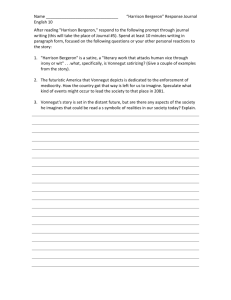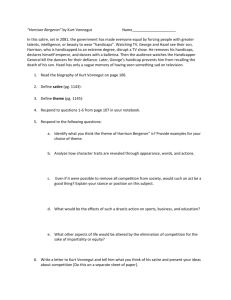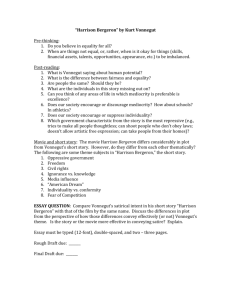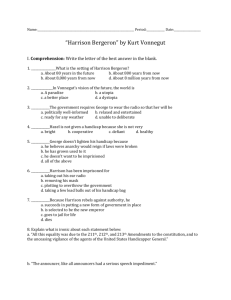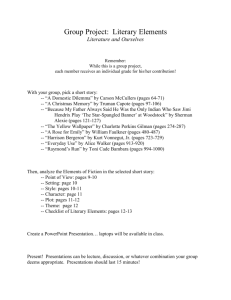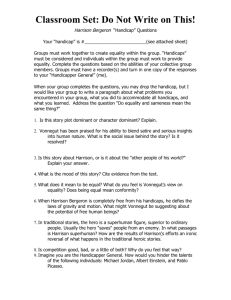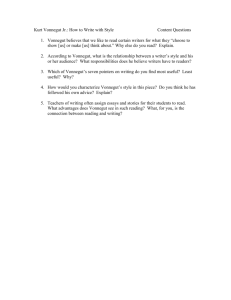Works Cited Festa, Conrad. “Vonnegut's Satire.” Vonnegut in America
advertisement
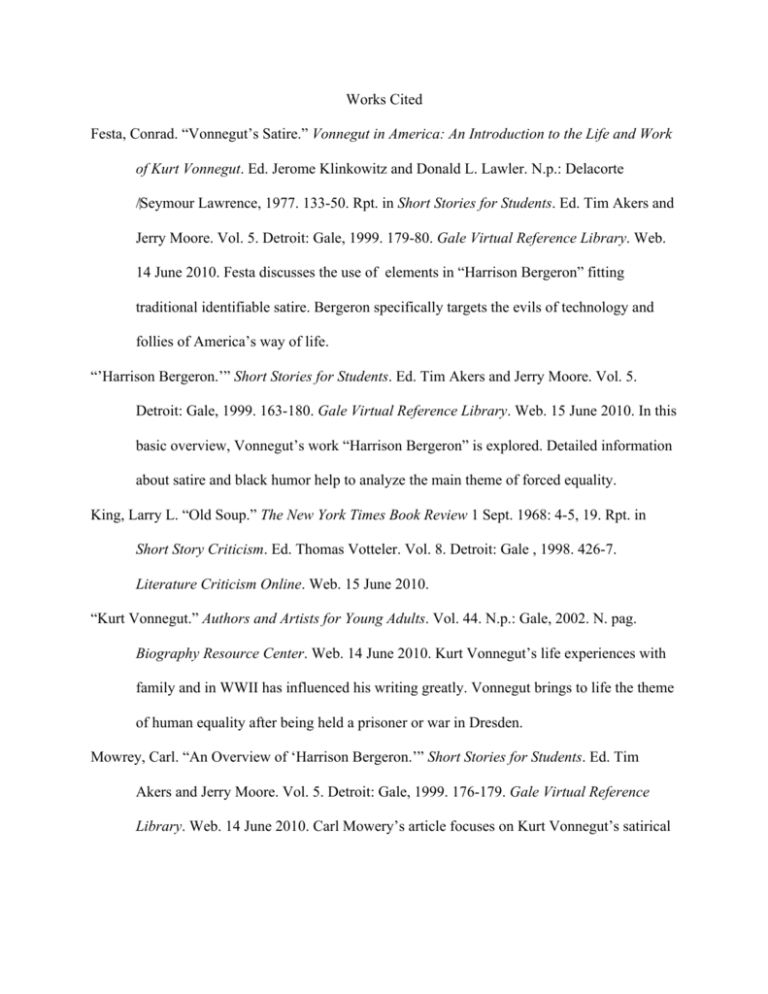
Works Cited Festa, Conrad. “Vonnegut’s Satire.” Vonnegut in America: An Introduction to the Life and Work of Kurt Vonnegut. Ed. Jerome Klinkowitz and Donald L. Lawler. N.p.: Delacorte /Seymour Lawrence, 1977. 133-50. Rpt. in Short Stories for Students. Ed. Tim Akers and Jerry Moore. Vol. 5. Detroit: Gale, 1999. 179-80. Gale Virtual Reference Library. Web. 14 June 2010. Festa discusses the use of elements in “Harrison Bergeron” fitting traditional identifiable satire. Bergeron specifically targets the evils of technology and follies of America’s way of life. “’Harrison Bergeron.’” Short Stories for Students. Ed. Tim Akers and Jerry Moore. Vol. 5. Detroit: Gale, 1999. 163-180. Gale Virtual Reference Library. Web. 15 June 2010. In this basic overview, Vonnegut’s work “Harrison Bergeron” is explored. Detailed information about satire and black humor help to analyze the main theme of forced equality. King, Larry L. “Old Soup.” The New York Times Book Review 1 Sept. 1968: 4-5, 19. Rpt. in Short Story Criticism. Ed. Thomas Votteler. Vol. 8. Detroit: Gale , 1998. 426-7. Literature Criticism Online. Web. 15 June 2010. “Kurt Vonnegut.” Authors and Artists for Young Adults. Vol. 44. N.p.: Gale, 2002. N. pag. Biography Resource Center. Web. 14 June 2010. Kurt Vonnegut’s life experiences with family and in WWII has influenced his writing greatly. Vonnegut brings to life the theme of human equality after being held a prisoner or war in Dresden. Mowrey, Carl. “An Overview of ‘Harrison Bergeron.’” Short Stories for Students. Ed. Tim Akers and Jerry Moore. Vol. 5. Detroit: Gale, 1999. 176-179. Gale Virtual Reference Library. Web. 14 June 2010. Carl Mowery’s article focuses on Kurt Vonnegut’s satirical attack on communities with evident forced equality. The critic highlights the likability of each character to symbolize the good in each individual. Vonnegut, Kurt. “Harrison Bergeron.” Welcome to the Monkey House : A Collection of Short Works . New York: Dial, 2006. 7-14. Print. The Bergeron family, including the main character Harrison Bergeron, experience what “true equality” is like in the year 2010 through the use of a Handicapper General. The theme is perfect equality is evident through the literary technique of satire.
